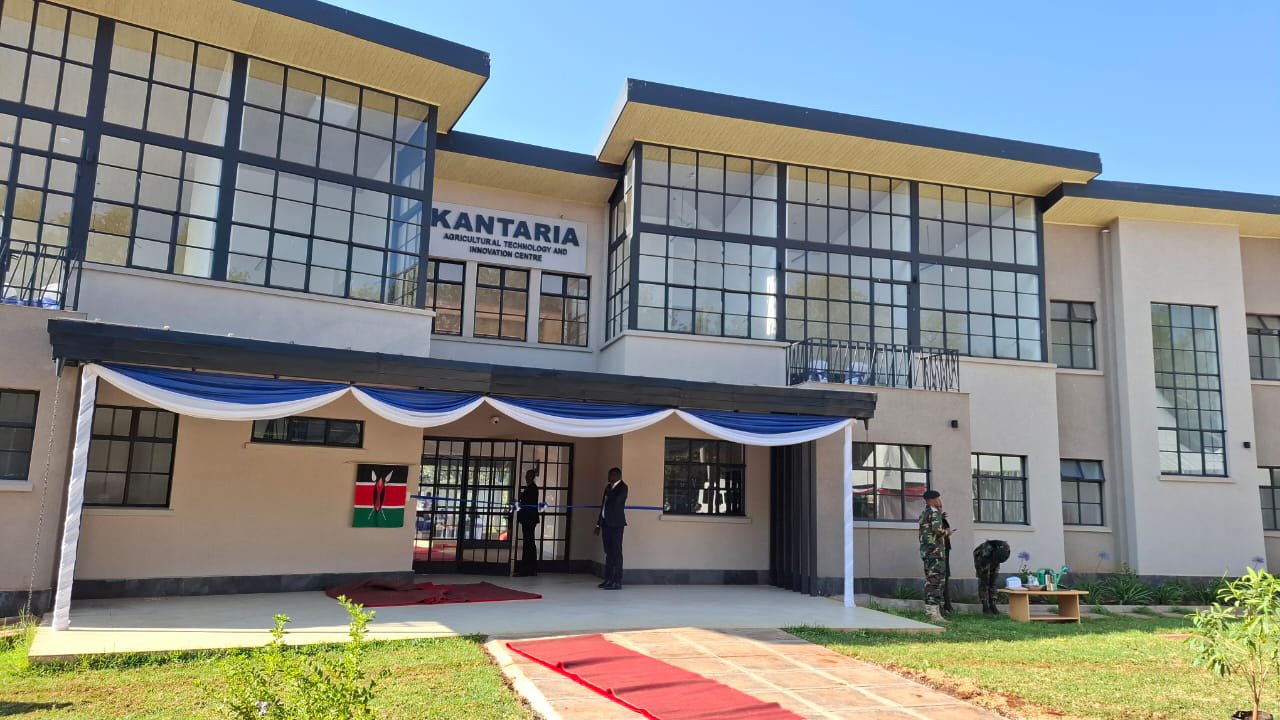UoN launches agri-innovation centre to bridge gap between theory and practice
Agriculture students at the University of Nairobi will now move beyond textbooks into real-world farming, thanks to the new technology and innovation centre launched recently to equip youth with practical, climate-smart skills
By Shelmith Nelima and Benson Ltamely
For years, many agricultural students in Kenya have mostly learned from books and classrooms, with limited opportunities to apply their knowledge in real farming environments. The recently-launched Kantaria Agricultural Technology and Innovation Centre (KATIC) at UoN’s Upper Kabete Campus is set to change that.
The centre will allow students to practice what they study, from planting to pest control, in real conditions, preparing them not just as graduates but as entrepreneurs, innovators, and job creators.
KATIC was officially launched by First Lady Rachel Ruto, marking a milestone in Kenya’s journey toward climate-smart, technology-driven agriculture.
The Ksh80 million centre, funded by Elgon Kenya through its chairman and managing director Dr. Bimal Kantaria, will serve as an innovation hub connecting academia, research, and the private sector to tackle Kenya’s food security challenges, train the next generation of agri-entrepreneurs, and support community development.
A centre for innovation and impact
KATIC is designed to equip young people with practical agricultural skills and exposure to cutting-edge technologies, including artificial intelligence (AI) applications in farming and drone-based pest control. By linking classroom theory with field practice, the centre will help bridge the gap between academic knowledge and real-world agribusiness.
According to Dr Kantaria, the project is both a legacy to his late father and his family’s way of giving back to Kenya. “This centre will equip students with practical skills required in the job market, while also nurturing youth to become entrepreneurs and employers,” said Dr Kantaria, noting that the centre will also boost food production and resilience against climate change.
Elgon Kenya, the country’s largest agri-input company, has a long history of supporting agricultural innovation and community development, including partnerships on school feeding programmes and food security initiatives.
Boosting student welfare
Beyond its national significance, it is hoped that KATIC will directly improve student welfare at the UON. The produce generated from the centre will help supply the university mess, enabling students to access meals at affordable prices.
University of Nairobi Students Association (UNSA) secretary-general, Wasike Elisha, welcomed the project, saying hunger is a major challenge for many students due to rising food costs.
“Kantaria Agricultural Technology and Innovation Centre will make the university self-sustaining and supply food to the mess and other institutions, enabling students to buy meals at lower prices,” he said.
He added that agriculture, which has the potential to contribute up to 70% of Kenya’s GDP, has not yet reached its full potential due to climate change, post-harvest losses, and volatile market prices. Initiatives such as KATIC, alongside others like the Mashavu student exchange programme with Israel and the kitchen garden projects led by the Office of the First Lady, are vital in addressing these gaps.
KATIC builds on Kenya’s growing ecosystem of agricultural innovation. It will support research and incubation while creating jobs for students and other Kenyans. By partnering with government programmes, universities, NGOs, and private sector players, the centre aims to drive adoption of climate-smart innovations, promote nutrition security through kitchen and household gardening, enhance entrepreneurship among youth and women and strengthen resilience to challenges like climate change and market shocks.
A model for the future
The launch of KATIC reflects the growing recognition that Kenya’s food security and economic prosperity depend on modernising agriculture. With its focus on technology, research, and student empowerment, the centre is poised to become a model for how universities can address national priorities while improving student welfare.
As First Lady Rachel Ruto noted at the launch, the centre demonstrates the power of collaboration between the private sector, academia, and government in delivering sustainable solutions for communities and the nation at large.



